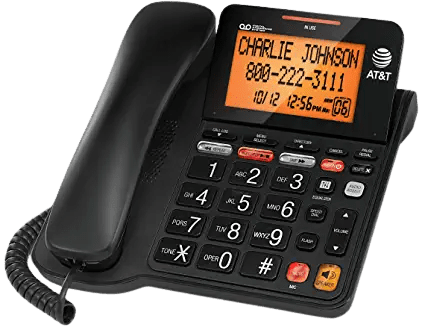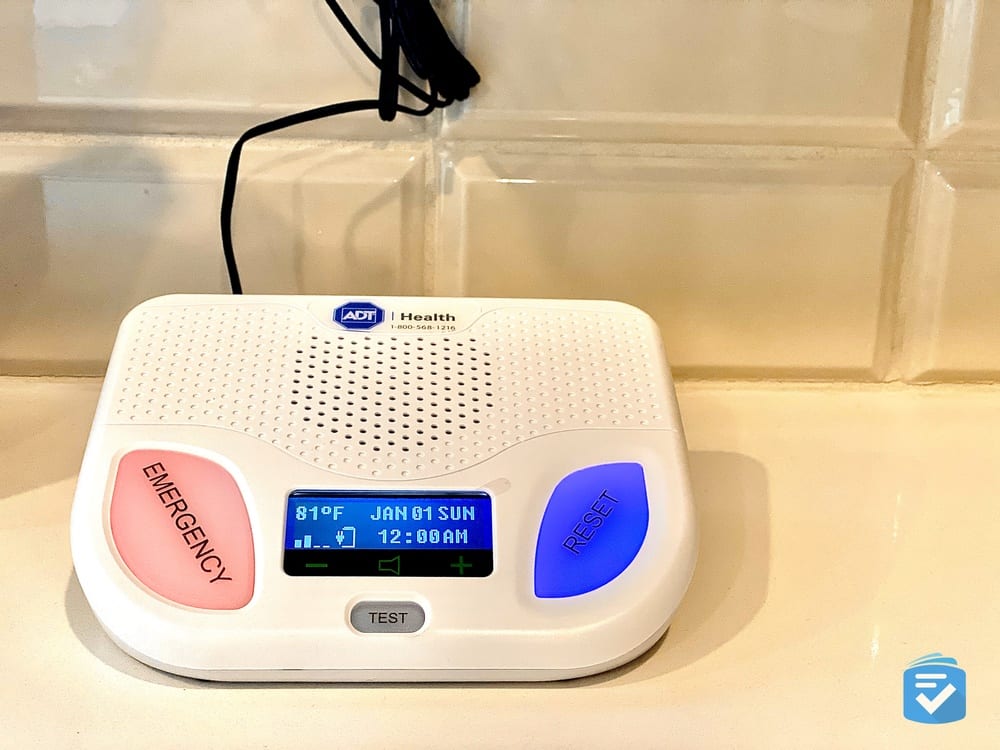5 Reasons You Should Keep Your Landline Phone
More people are cutting their landlines every year: Around 62% of American adults live in wireless-only households, with more people cutting the cord each year. This doesn’t necessarily mean going wireless is the best option. For seniors, in particular, keeping your landline provides added safety and call quality.
Here’s why you should keep your landline.
Pro Tip: To learn more about landlines, be sure to check out our rundown of the best landlines for seniors.
1. Landlines Are Incredibly Cheap
Landline service is often much cheaper than a cellular plan because you’re paying for only one function: calls. Landlines do not require a Wi-Fi connection or apps to operate. The average cost of a landline is $42 per month, as opposed to the average of $77 per month for a cell phone plan, and programs like community phone and Lifeline offer significant discounts for seniors and low-income people.
2. Landlines Have Better Sound Quality
As their name implies, landlines are connected to analog wires running deep into the ground or along telephone poles. This direct connection allows them to continue to operate even in bad weather or in rural areas.

Because they run on a wireless network, cell phones are more susceptible to interference, and cell towers are very sensitive to the elements and have a limited range. A landline will never drop calls, and they are generally louder; they can always be used to reach someone in an emergency. Advances like wireless receivers make them the most convenient they’ve ever been.
3. Landlines Work During Power Outages
Power outages are a part of modern life, but the buried power wires used by landlines are protected from their effects. Phone lines are connected to a complex battery system by phone companies, as well as backup generators. Landlines also do not have to be charged like cell phones, making them usable even when the lights are out. It is important to note that this is only true for wired landlines; wireless ones are often connected to a Wi-Fi network and will not work in an outage.
4. Some Medical Alert Systems Rely on Landlines
While many medical alert systems use a cellular connection, some of our favorite medical alert systems operate through a landline. These landline systems are often among the most affordable medical alert systems, and they can function anywhere, regardless of cellular signal strength. With built-in backup batteries, they’ll also function for several days in the event of a power outage.

5. Landlines Provide Location to First Responders
First responders rely on being able to reach emergencies fast and accurately. Because cell phones rely on GPS service provided by towers, call locations can only be triangulated to an approximate distance from the local cell tower, which can force responders to guess inside huge areas. A landline’s wired connection will route your call to a central office, allowing 911 responders to instantly query their main database and find your information for medical professionals if needed. In an emergency, where seconds matter, this can make all the difference.
Bottom Line
While not as immediately convenient as cell phones, landlines are still easier to operate for many seniors and older adults due to their simplicity and reliability. Remember, wired phones never drop calls or lose power during an outage, and they can immediately connect you to first responders in an emergency. Consider all this before deciding to cut the cord!
Alternatively, if you’re looking for a cellular provider, be sure to check out our rundown of the best senior cell phone plans.
